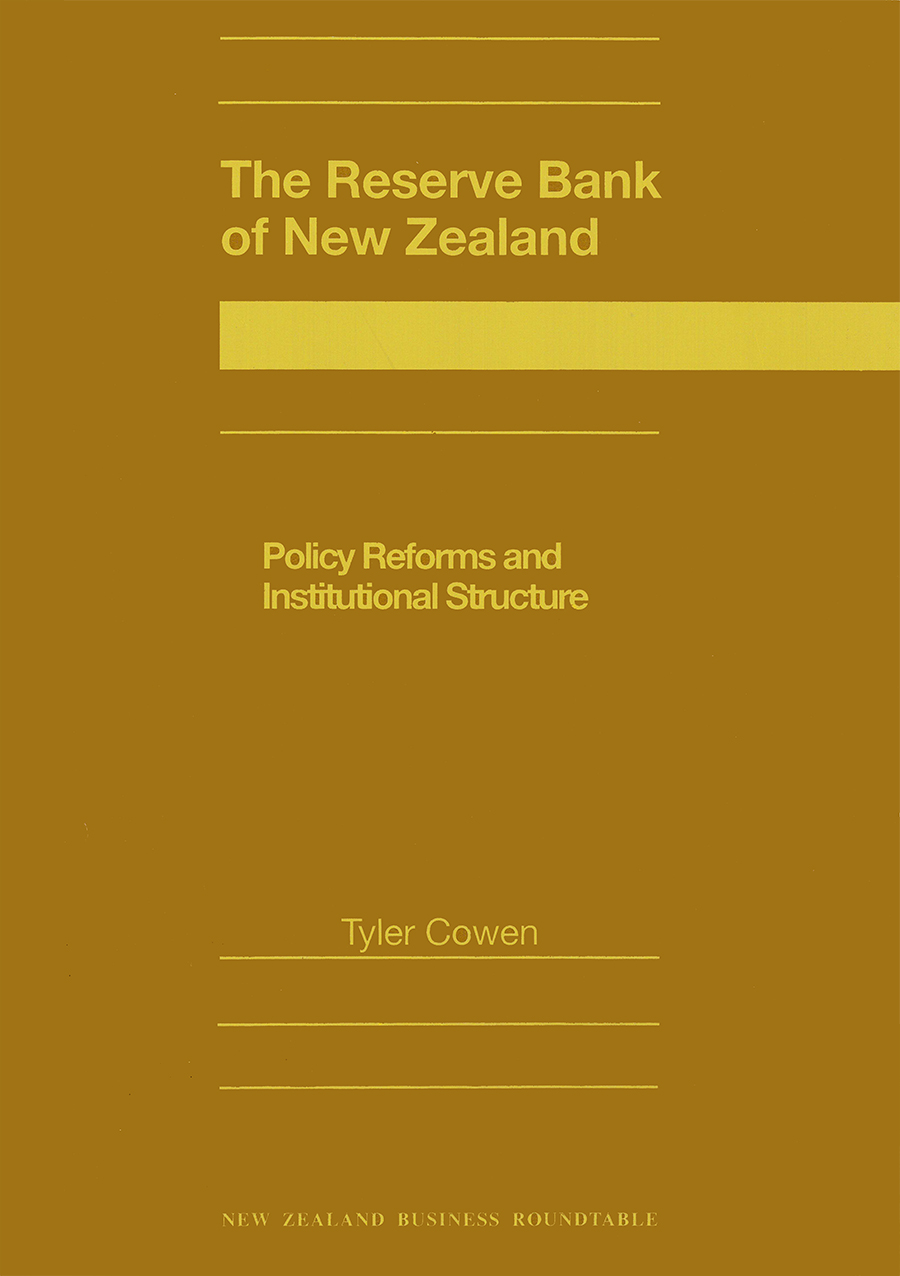Fighting inflation is and should be a primary goal of the Reserve Bank. Inflation decreases the incentive to save, misallocates resources, interacts with the tax system in pernicious ways, distorts the information conveyed by market prices, increases uncertainty, and redistributes income arbitrarily. Inflation damages both employment and output in the long run.
A purely discretionary monetary policy leads to pressures upon central banks to inflate the money supply. The Reserve Bank Act of 1989 and the accompanying "Policy Targets Agreement" with the Reserve Bank Governor provide useful constraints upon this tendency. In contrast to previous New Zealand history, today's Reserve Bank should do little to disrupt price stability, if it adheres to its legislative mandate.
Policymakers know very little about the true structure of the macroeconomy, including key prices such as interest and exchange rates. Policy should be simple and transparent and provide a rules-based, predictable macroeconomic environment.
Central banks can be constrained by price rules, money supply rules, or both. This study analyses the advantages and disadvantages of each. Given that the current regime has already attached its credibility to the maintenance of a price rule, a price rule should be maintained. The price rule can be strengthened by a supplementary monetary base rule. When the Reserve Bank cannot meet its price target because of external forces (e.g., oil price shocks), the ability of the Reserve Bank to increase the money supply should be constrained.
Movement towards price targets and adherence to monetary constraints should not be overriden by desires to smooth nominal interest rates or intervene in foreign exchange markets. Both of these policies conflict with monetary stability and are counter-productive in the long run. The government should not borrow for the reserves management fund of the Bank.
Monetary reforms could be combined usefully with reforms in the areas of fiscal policy, wage and price flexibility, and tax structures. Credible monetary policy rests ultimately upon a free economy and a responsible fiscal authority.
Current incentive structures in the Reserve Bank are an admirable feature of the current policy environment. A single individual, the Governor, is accountable for the explicit task of achieving price stability. Furthermore, the Bank's budget is fixed in nominal terms over a five-year cycle; to the extent the Bank behaves as a budget-maximising bureaucracy, the incentive is to minimise inflation. These institutions should be continued and strengthened.
The Bank's role in prudential supervision is a serious weakness of the current regime. The Reserve Bank does not have the resources or ability to detect and preempt banking failures. Furthermore, the supervisory role of the Reserve Bank will ultimately translate into Reserve Bank responsibility for insolvent financial institutions. Current safeguards in this area are not sufficient. The Bank should forsake its lender of last resort function to encourage private sector sources of system stability and to minimise moral hazard problems.
Current supervision policies are based upon the international Basle standards, which are flawed and inappropriate for New Zealand. The Basle standards provide an illusory appearance of safety, direct the allocation of capital, distort bank loan portfolios, and damage the prospects for economic growth. The Reserve Bank should retreat from the arena of prudential supervision and allow a greater role for market incentives.
Gold and commodity standards are not feasible alternatives for a small country such as New Zealand. Financial innovation, however, may move New Zealand further in the direction of deregulated banking and away from government fiat money. A future scenario is considered in which dollars are no longer used for interbank settlement and the Reserve Bank has monetary leverage through currency alone. In preparation for forthcoming policy re-evaluations, policymakers should study the properties of such a world.



